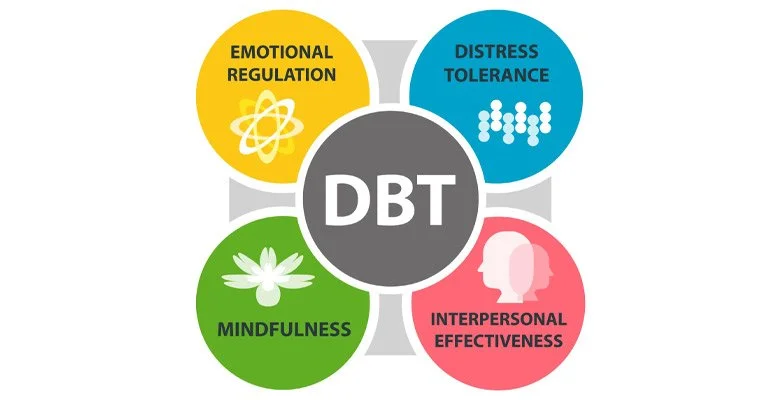What is dialectical behavior therapy (DBT)?
Dialectical behavior therapy (DBT) is a type of talk therapy (psychotherapy). It’s based on cognitive behavioral therapy (CBT), but it’s specially adapted for people who experience emotions very intensely.
Cognitive behavioral therapy (CBT) is a type of talk therapy that helps people understand how thoughts affect emotions and behaviors.
“Dialectical” means combining opposite ideas. DBT focuses on helping people accept the reality of their lives and their behaviors, as well as helping them learn to change their lives, including their unhelpful behaviors.
Dialectical behavior therapy was developed in the 1970s by Marsha Linehan, an American psychologist.
What is dialectical behavior therapy (DBT) used for?
Dialectical behavior therapy (DBT) is especially effective for people who have difficulty managing and regulating their emotions.
DBT has proven to be effective for treating and managing a wide range of mental health conditions, including:
Borderline personality disorder (BPD).
Self-harm.
Suicidal behavior.
Post-traumatic stress disorder (PTSD).
Substance use disorder.
Eating disorders, specifically binge eating disorder and bulimia.
Depression.
Anxiety.
It’s important to note that the reason DBT has proved effective for treating these conditions is that each of these conditions is thought to be associated with issues that result from unhealthy or problematic efforts to control intense, negative emotions. Rather than depending on efforts that cause problems for the person, DBT helps people learn healthier ways to cope.
Who Is Dr. Marsha Linehan, the creator of dialectical behavior therapy (DBT)?
Marsha Linehan is a professor of psychology and adjunct professor of psychiatry and behavioral sciences at the University of Washington. She is the founder of the Behavioral Research and Therapy Clinics, a consortium of research projects developing new treatments and evaluating their efficacy for severely disordered and multi-diagnostic populations. Her work has revolutionized the way we approach mental health treatment, particularly for those with severe and complex disorders.
Marsha Linehan has openly discussed her own struggles with mental illness, specifically borderline personality disorder (BPD). She was hospitalized for BPD as a young adult and has used her personal experiences to inform her work in developing effective treatments for individuals with severe mental health conditions. Her bravery in sharing her own story has helped to reduce the stigma surrounding mental illness and has inspired countless others to seek help.
Origins of DBT
Marsha Linehan developed Dialectical Behavior Therapy (DBT) in the late 1980s as a treatment for individuals with borderline personality disorder (BPD) who were chronically suicidal. DBT was developed as a modification of cognitive-behavioral therapy (CBT) to better address the needs of this population. Linehan recognized that traditional CBT wasn’t enough for these individuals, who often struggled with intense emotions and self-destructive behaviors.



